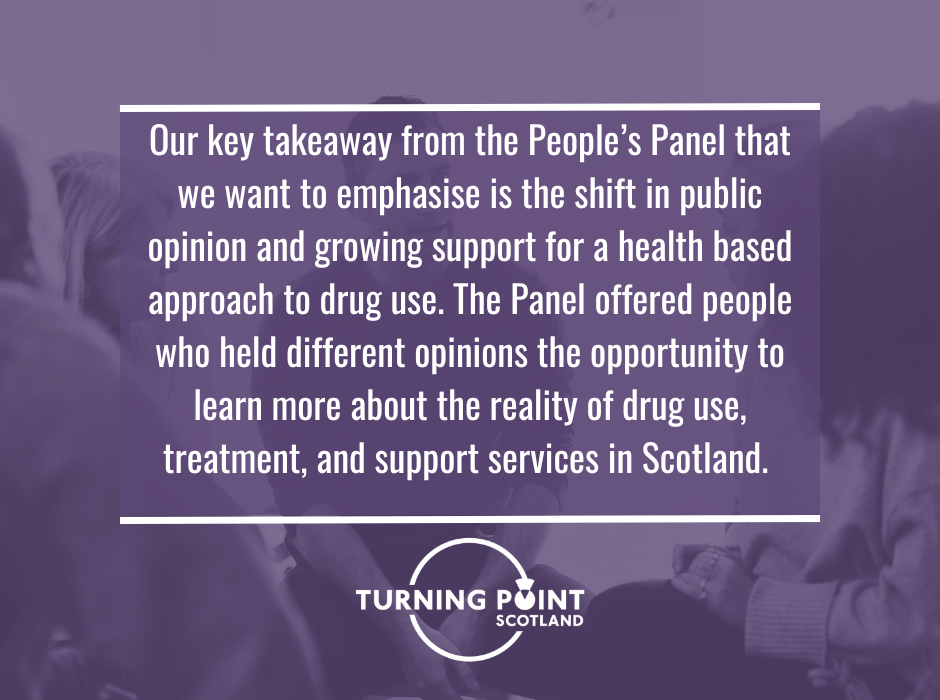Turning Point Scotland recently took part in the People’s Panel on reducing drug harm and deaths in Scotland. The panel brought together a small, representative sample of the population to learn about the current state of drug related harms and deaths, and to make a series of recommendations on what Scotland needs to do differently in order to address this issue. The Panel participated in discussions led by a range of expert witnesses, including people with lived experience and third sector organisations.
Turning Point Scotland’s Head of Alcohol and other Drugs, Patricia Tracey, and Practice and Innovation Lead, Jan Mayor, presented evidence on current options for access to treatment and care, what is working well, and the current challenges.
The Panel’s recommendations generally centred around access to treatment and support, prevention, and reform, and aligned with many of Turning Point Scotland’s asks. In particular:
- Services should move from a zero tolerance approach to a high tolerance approach – We know that effective treatment and support means meeting people where they are. We also call on services to remove barriers to treatment, such as abstinence and narrow eligibility requirements, in order to ensure that people can access the support they deserve.
- Continued support for people in recovery – Turning Point Scotland supports a range of people including those with problematic alcohol and other drug use, people experiencing homelessness, and people who have been involved in the criminal justice system. We know from experience that these issues are often intersecting and require wraparound care. By addressing people’s wider needs, we can avoid the ‘cliff edge’ that many people face at the end of their treatment and increase the likelihood of long-term recovery.
- Addressing poverty – People from the most deprived areas of Scotland are more likely to die from a drug related death – and this gap is growing[1]. This is undoubtedly the biggest driver of problematic drug use in Scotland, and we need to think about how we will challenge the social and structural issues that contribute to this risk of harm.
- Culture change – The People’s Panel is clear – we need brave and bold change. We have long called for the Scottish Government to challenge convention, and to implement innovative policies that are effective and evidence-based. We are getting there – the new pilot safer consumption facility is a step in the right direction towards bold change, but we can do more. The Scottish Government should speed up work on Heroin assisted Treatment and consider other creative, innovative work in order to lead the shift towards a health-based approach to drug use.
We know our system is not working – but what we need now is action to ensure the best possible outcomes for those with problematic drug use. We want to know how this report will be used by the Committees and by the Government to move us forward.
Our key takeaway from the People’s Panel that we want to emphasise, is the shift in public opinion and growing support for a health based approach to drug use. The Panel offered people who held different opinions the opportunity to learn more about the reality of drug use, treatment, and support services in Scotland. When given that opportunity to look behind the stigma and the misconception that dominates so much of our discourse, people choose to make bold, compassionate, and rights based recommendations for action.
This shift in attitude makes us hopeful for the future, and we believe that we are another step closer to achieving a system focused on support rather than punishment.
[1] ‘People’s panel’ for reducing drug deaths in Scotland and tackling problem drug use | Scottish Parliament Website
Download our response here:

